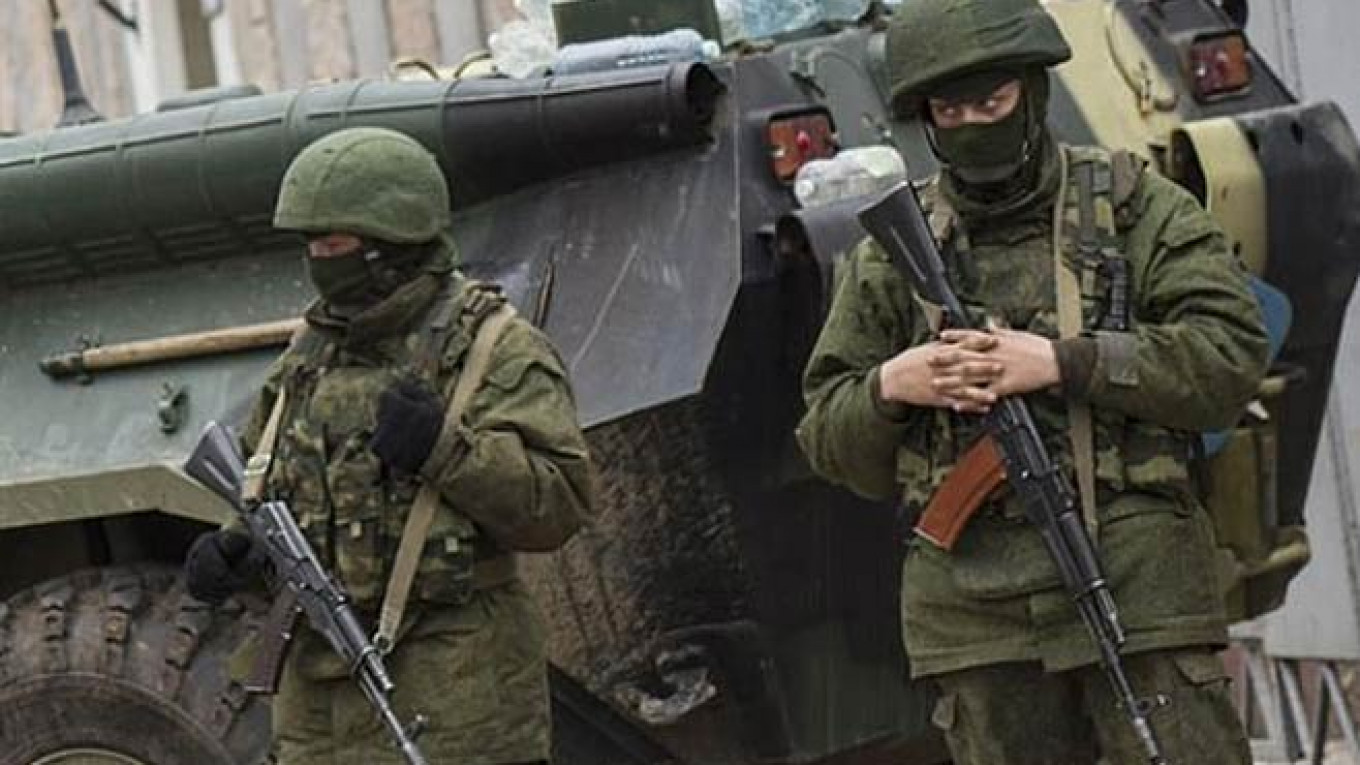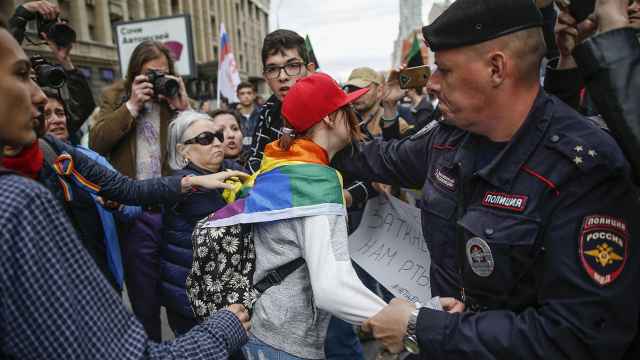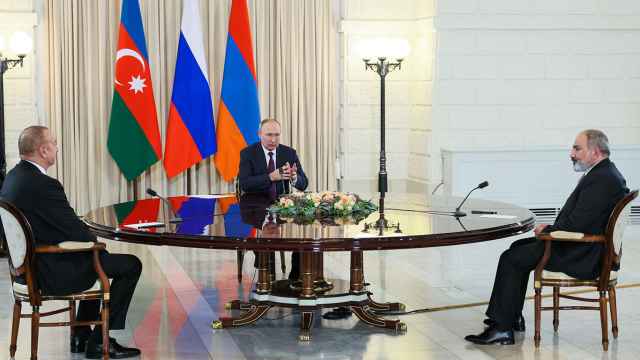As Ukraine teeters on the brink of civil war after the recent tragedy in Odessa where at least 42 people died, tensions between Ukraine and Russia remain extremely high. Meanwhile, 40,000 Russian troops are massed on Ukraine's borders, and NATO's Supreme Commander Europe General Philip Breedlove has estimated that the Russian forces could conquer large chunks of eastern and southern Ukraine in three to five days.
Will Putin actually invade?
On the surface, it seems like the negatives of a Russian invasion would outweigh the positives. First, a Russian invasion would result in sweeping Western sectoral sanctions that could do real damage to Russia's economy. The fallout from even the small and targeted sanctions to date has already resulted in massive capital flight and the downgrading of Russia's credit status by Standard & Poor's to only one notch above "junk" status.
If the West targets large swathes of Russia's broader economy such as its energy sector — essentially cutting off Russia's largest oil and gas companies from the international banking system — an already weak Russian economy could go into full-scale collapse. If we consider how Western sanctions have practically brought Iran to its knees, we can understand the penalties Russia risks incurring.
From a military perspective, a Russian invasion would likely result in significant Ukrainian resistance. While some political decentralization is attractive to many in eastern Ukraine, all independent polling data to date has indicated little support for full annexation by Russia. Therefore, while Russia would accomplish its military objectives, it could well have to contend with an ongoing partisan movement, especially from the significant number of ethnic Ukrainians in rural areas in the eastern regions.
Much of Putin's support has been built upon an implicit deal with his constituency: The government offers an increase in living standards for most Russians as long as they do not challenge Putin's vertical power structure. What happens in Russia politically if Putin cannot hold up his end of this bargain, particularly when Putin's constituency sees Slavs killing fellow Slavs? Are Russians prepared to see their country become an international pariah?
Given these facts, Putin likely finds it preferable to continue his ongoing destabilization of Ukraine but without the fallout an invasion would bring. Putin's objective is to make eastern Ukraine ungovernable, to create a sense of chaos and ultimately to weaken the central government in Kiev so it cannot join the European Union or NATO.
Despite this logic, however, many Western analysts do not appreciate Russians' deep sense of humiliation since the breakup of the Soviet Union, which was only exacerbated by NATO expansion to Russia's borders.
Considering also that many Russians still cannot conceive of Ukraine as a separate country. we may be underestimating how far Putin may be willing to go to restore Russia's imperial glory. What's more, Russia will likely never be in such a strong position as it is today to reclaim what Putin considers to be historically Russian territory.
At the end of the day, though, a Russian invasion is unlikely, in my opinion. But didn't we think the same about Crimea?
Josh Cohen is a former USAID project officer involved in managing economic reform projects in the former Soviet Union. He contributes to a number of foreign policy-focused media outlets and tweets at @jkc_in_dc
A Message from The Moscow Times:
Dear readers,
We are facing unprecedented challenges. Russia's Prosecutor General's Office has designated The Moscow Times as an "undesirable" organization, criminalizing our work and putting our staff at risk of prosecution. This follows our earlier unjust labeling as a "foreign agent."
These actions are direct attempts to silence independent journalism in Russia. The authorities claim our work "discredits the decisions of the Russian leadership." We see things differently: we strive to provide accurate, unbiased reporting on Russia.
We, the journalists of The Moscow Times, refuse to be silenced. But to continue our work, we need your help.
Your support, no matter how small, makes a world of difference. If you can, please support us monthly starting from just $2. It's quick to set up, and every contribution makes a significant impact.
By supporting The Moscow Times, you're defending open, independent journalism in the face of repression. Thank you for standing with us.
Remind me later.







